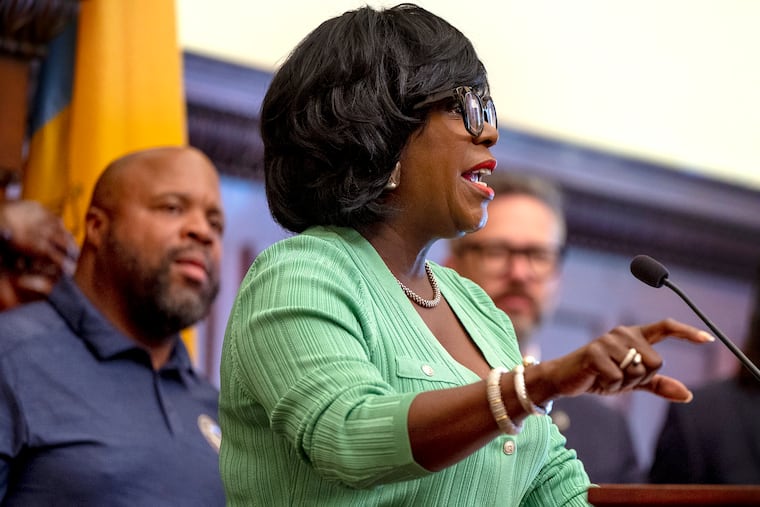Mayor Parker reaffirms dedication to utilizing project labor agreements for city-funded projects.
Mayor Cherelle L. Parker of Philadelphia has taken a significant step toward reshaping labor relations in the city’s public works sector by signing an executive order that requires city agencies to consider Project Labor Agreements (PLAs) for taxpayer-funded projects. This directive, introduced on Tuesday, aligns with long-standing advocacy from construction worker unions which have argued for higher pay standards and improved hiring practices within publicly funded initiatives.
The newly signed order mandates that in preparing labor agreements, city agencies will prioritize the establishment of PLAs, which lay out terms such as wage standards, local hiring requirements, and methodologies for resolving labor disputes. A notable aspect of these agreements is their potential to promote unionized labor by ensuring that contractors engaged in city projects adhere to union standards. This alignment with union labor has been a cornerstone in the Democratic political landscape, particularly in light of Parker’s reliance on the unions for support during her recent mayoral campaign.
Parker, speaking at a press conference attended by numerous union leaders—including Ryan Boyer, head of the Philadelphia Building Trades & Construction Council—stressed that the objective of the executive order is not to exclude nonunion contractors from bidding for city projects. The order explicitly includes language that affirms contractors’ rights to select nonunion bidders, reflecting an awareness of previous legal challenges to PLAs, such as a 2019 Pennsylvania Supreme Court ruling that deemed a PLA requiring union labor as a violation of competitive bidding laws.
Philadelphia has a historical precedent for PLAs, with such arrangements being commonplace in the city. Past mayors, including Ed Rendell, Michael Nutter, and Jim Kenney, have implemented similar policies aimed at advancing labor standards in public works. Parker’s executive order shares similarities with initiatives undertaken by Governor Josh Shapiro, who also urged state agencies to consider PLAs.
While supporters of PLAs advocate for their role in enhancing labor standards and mitigating the risk of work stoppages, critics assert that these agreements may inadvertently exclude nonunion labor from public sector opportunities, potentially leading to inflated project costs. David R. Osborne, a senior director of labor policy at a prominent think tank, noted concerns that the new executive order could favor unions, thereby complicating the bidding landscape for nonunion contractors.
As these developments unfold, the implications of Parker’s executive order are likely to resonate throughout Philadelphia’s construction sector, shaping labor relations and project execution in the years to come. The balance between union support and competitive bidding will be a critical focus as the city navigates this pivotal labor policy.







